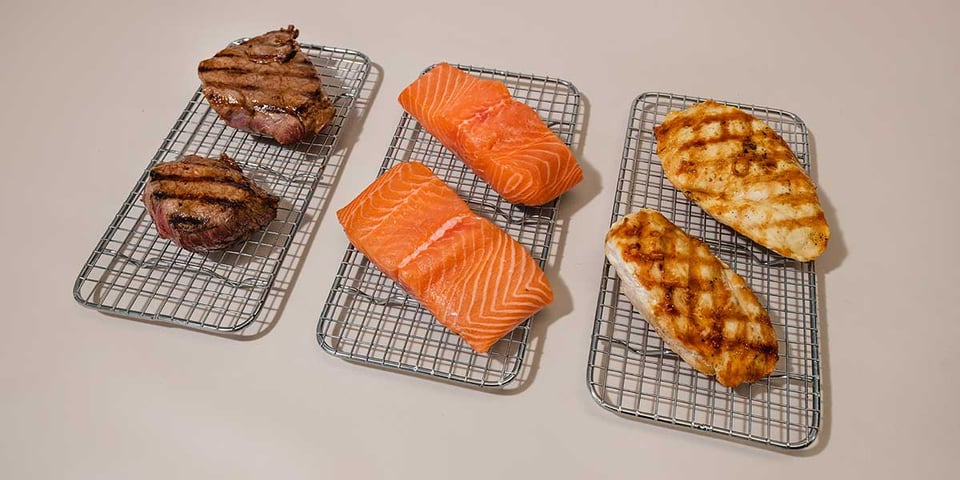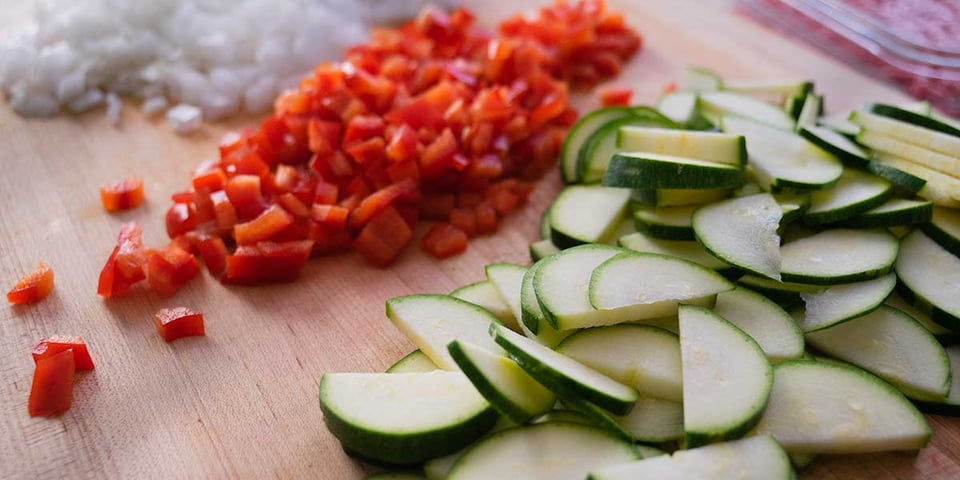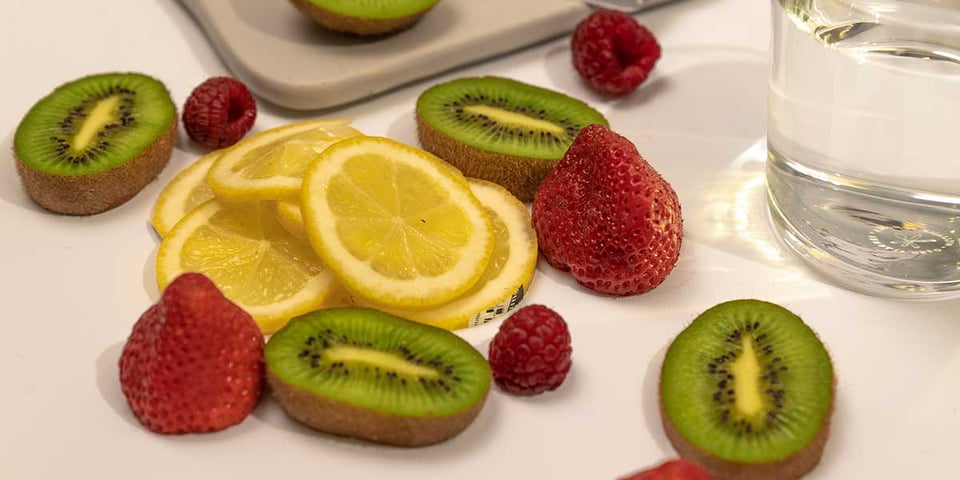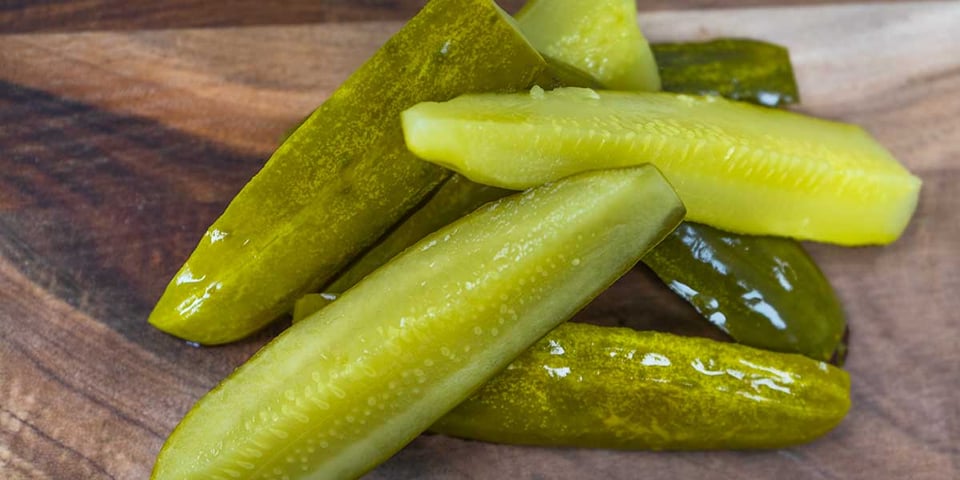Popular among anti-inflammatory diets and a close relative of the paleo diet, an AIP diet is a relatively new lifestyle approach. But what exactly does it entail and which foods are AIP approved?
What You Need to Know About an Autoimmune Protocol Diet
An AIP diet or autoimmune protocol diet is believed by some, to support gut health and reduce inflammation associated with autoimmune diseases like crohn's disease and rheumatoid arthritis.
However, the link between metabolism and the immune system is not well understood and scientists are only beginning to tap into the relationship between food and inflammation.
In other words, this style of eating is not heavily rooted in science and may not offer any advantages over a basic healthy diet (1,2). And if you have an autoimmune condition, you are likely much better off following medical advice from a trained physician or dietitian.
Regardless, there likely isn’t any harm to trying AIP either as long as you focus on good nutrition and feeding your body the food it needs to thrive.
How to Start an AIP Diet
If you are interested in trying an AIP eating plan, here’s some tips to go about it in a healthy way.
1. Use portion control
Regardless of what type of diet or lifestyle you choose to follow, calorie control is the only known, proven approach to weight management. Meaning, if you are looking to lose weight or even maintain your weight on AIP, portion control is essential.
Start by figuring out how many calories you need each day and then build your AIP approved menu to match!
2. Balance Your Nutrition
The quality of your calories matter when it comes to your health - this means finding the right balance of macronutrients and micronutrients with your meals.
Getting enough protein, carbs, and healthy fats along with essential vitamins and minerals can support improved mood, energy levels, and help manage diet related chronic illness.
3. Be Flexible
AIP is technically an elimination diet - meaning you cut out specific foods for a certain time period and then gradually add them back in, one by one.
This method allows you to determine if any specific foods are causing discomfort or noticeable symptoms so that you can avoid them for the foreseeable future.
Follow a menu based on the suggested food lists below for two to three weeks and then slowly start adding these foods back in, paying close attention to how your body feels is key.
What Foods Should You Initially Avoid on an AIP Diet
Backers of the AIP diet believe that heavily processed, modern foods like refined grains, dairy, sugar, and alcohol can lead to increased inflammation and intestinal permeability resulting in something referred to as “leaky gut”. But this is not a defined medical condition and not proven with research (3,4).
AIP also restricts some nutritious foods that some believe may irritate your gut including nightshades, nuts, seeds, legumes, and eggs. But, again, there is not any research to suggest that these foods negatively impact your health.
In addition to nearly all processed foods, the recommended foods to restrict on AIP include:
- Alcohol
- Chlorella
- Coffee
- Dairy
- Eggs
- Eggplant
- Goji berries
- Grains
- Legumes
- Nuts
- Peppers
- Potatoes (except sweet potatoes and yams)
- Seeds
- Seed oils: canola oil, sesame oil, sunflower oil, etc.
- Spirulina
- Sugars
- Tomatoes
Adding These Foods Back In
Because AIP is an elimination diet, you don’t need to avoid these foods forever. After a few weeks, start to add back in your favorite options and see if it makes a difference to how you are feeling.
The Best AIP Foods to Eat
Just because a food “fits” into the AIP criteria does not mean you can eat as much as you want. Calorie control is still crucial to weight management. Additionally, your overall nutrition intake has a major impact on your long term health and wellbeing - likely more so than following an AIP diet in the first place.
To ensure you get the most nutrition while sticking to your AIP diet list, here are the best foods to add to you AIP meal plan.
Meat and Fish

Grass-fed, organic proteins and sustainably caught fish are a great way to get lean protein and nutrition into your diet.
Eating seafood, especially fatty fish, is one of the best ways to get important omega-3 fatty acids linked to improved heart health, brain health, and potentially reduced inflammation (5,6,7).
In addition, diets high in protein are associated with many positive health weight loss benefits including supporting lean muscle mass, and reduced cravings and hunger (8,9,10,11).
To get some of these potential benefits, aim to get roughly 20% to 30% of your daily calories from lean protein each day.
Here are some of the best sources of protein to stock up on:
- Anchovies
- Antelope
- Bison
- Cod
- Chicken
- Crab
- Clams
- Duck
- Elk
- Goat
- Grass-fed beef and steak
- Herring
- Ostrich
- Pork
- Lamb
- Lobster
- Mackerel
- Mussels
- Oysters
- Salmon
- Sardines
- Scallops
- Shrimp
- Tilapia
- Tuna
- Turkey
- Venison
Vegetables

Nearly all veggies are AIP approved with the exception of nightshades (noted above).
Vegetables, especially non-starchy veggies, are nutrient dense superfoods - with many high in essential micronutrients and low in calories. Plus, research suggests that a balanced diet high in veggies can promote improved health and may play a role reducing inflammation (12).
Stack your plate with high amounts of the following veggies:
- Acorn squash
- Artichokes
- Asparagus
- Avocado
- Beets
- Bok Choy
- Broccoli
- Brussels sprouts
- Cabbage
- Carrots
- Cassava
- Cauliflower
- Celery
- Chicory
- Cucumber
- Fennel
- Fresh Herbs: basil, cilantro, oregano, parsley, thyme, etc.
- Green onions/scallions
- Jicama
- Kohlrabi
- Leafy greens: arugula, collards, endive, dandelion, kale, lettuce, mustard greens, romaine, spinach, Swiss chard, turnip greens, watercress, etc.
- Leeks
- Mushrooms
- Okra
- Onions
- Parsley
- Parsnips
- Pumpkin
- Radicchio
- Radish
- Rutabaga
- Seaweed
- Summer squash
- Sweet Potato
- Taro
- Turnips
- Watercress
- Winter Squash
- Yams
- Zucchini
Fruits

While higher in natural sugars than veggies, fruits are also a good source of nutrition and fiber for good health.
AIP approved fruits include:
- Apples
- Apricots
- Bananas
- Blackberries
- Blueberries
- Cantaloupe
- Cherries
- Coconut
- Cranberries
- Dates
- Figs
- Grapefruit
- Grapes
- Guava
- Melon
- Kiwi
- Lemon
- Lime
- Lychee
- Mandarins
- Mango
- Nectarines
- Oranges
- Olives
- Papaya
- Passion Fruit
- Peaches
- Pears
- Persimmons
- Pineapple
- Plums
- Pomegranates
- Raspberries
- Rhubarb
- Star Fruit
- Strawberries
- Tangerines
- Watermelon
Butter and Oils
Seed oils and heavily processed fats and oils are restricted with AIP, but there are still many heart healthy sources of fat you can enjoy, including:
- Avocado oil
- Coconut oil
- Olive oil
Fermented Foods

Because AIP is rooted in prompting better gut health, fermented foods are commonly encouraged.
As a source of natural probiotics, some studies imply that fermented foods can support improved general health and your immune function (13). But, while the research surrounding fermented foods and gut microbiota is fascinating, much more research is needed to determine how effective these foods truly are.
Popular fermented health foods include:
- Coconut milk kefir and yogurt
- Kombucha
- Pickled veggies
- Sauerkraut
- White kimchi
Other Specialty Foods
Other specialty foods that commonly have gut health claims (most of which are not proven with research) and are considered AIP friendly include:
- Bone broth
- Collagen
- Vinegar